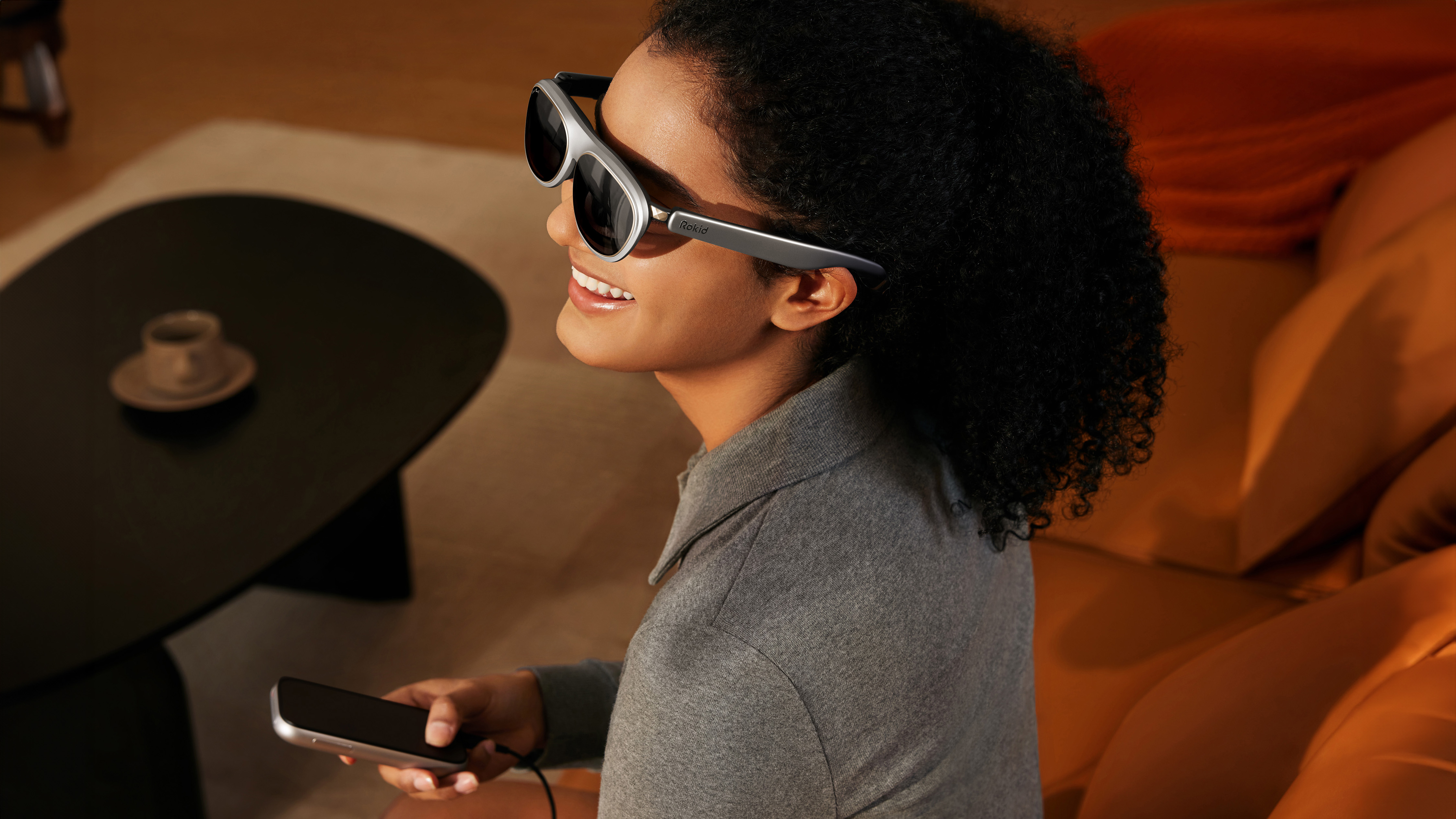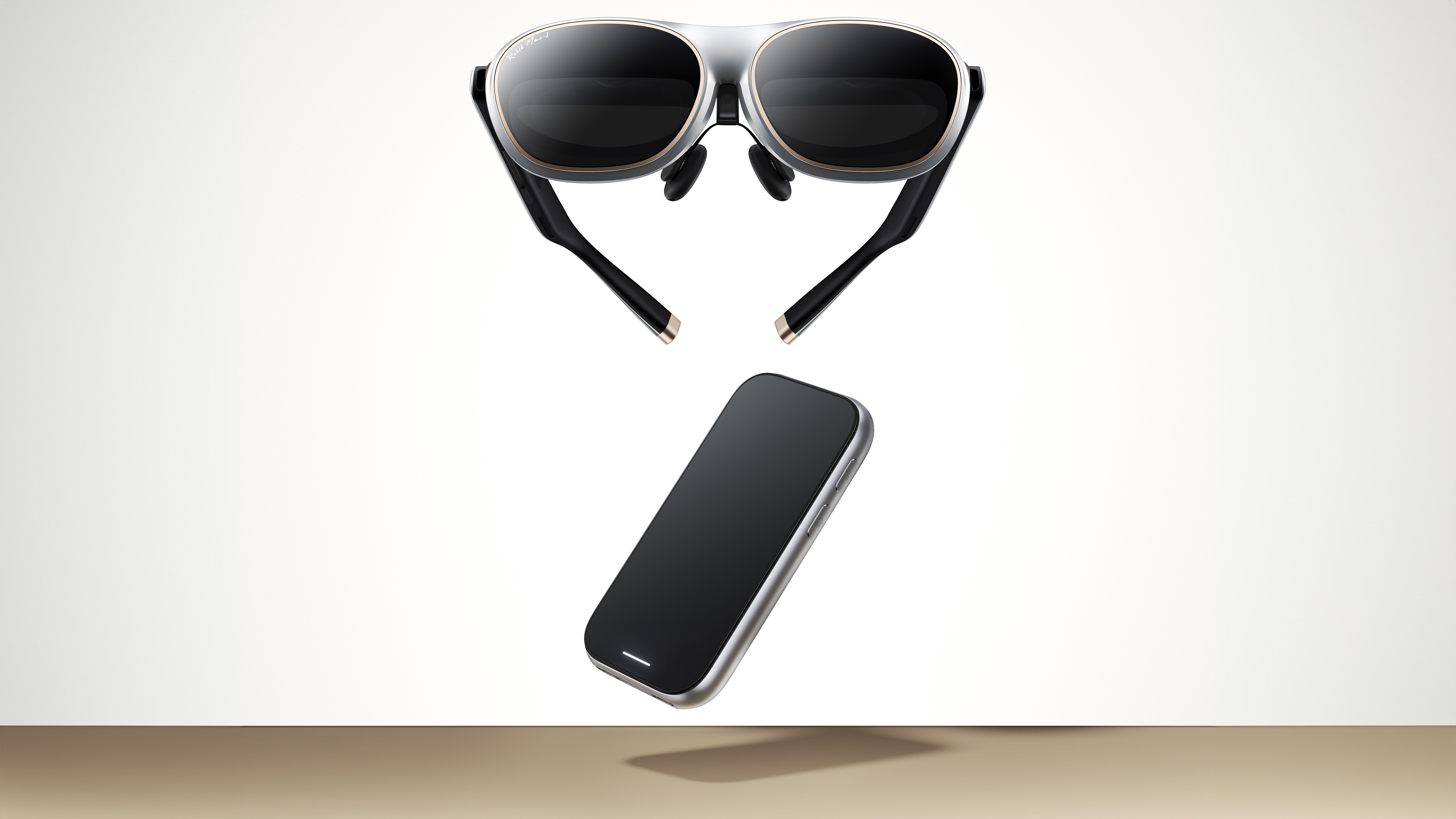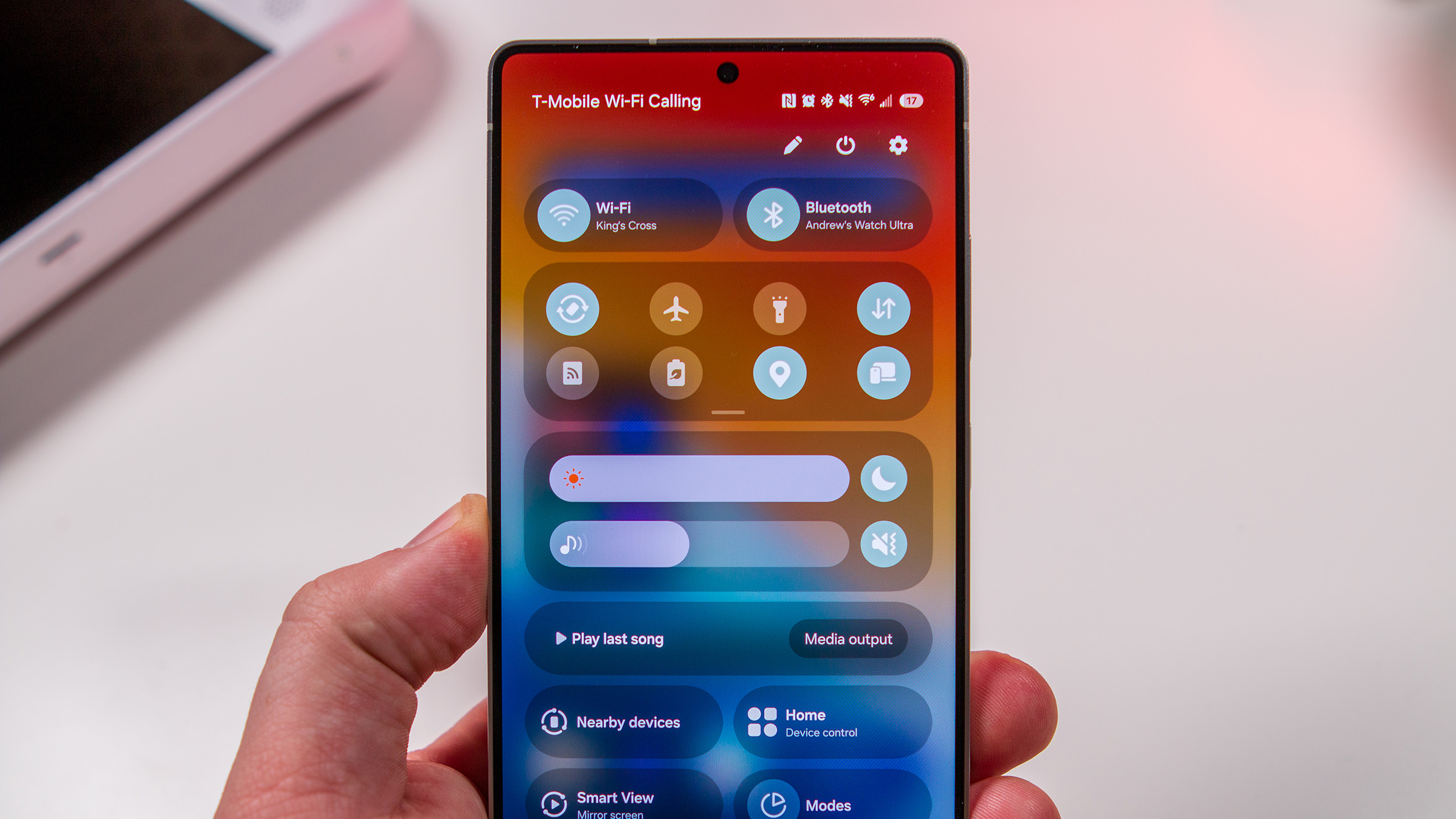Rokid AR Lite finally fixes two of the biggest problems with smart glasses
Rokid AR Lite introduces an IPD adjustment function and a spatial operating system.

What you need to know
- Rokid AR Lite is a new smart glasses package that includes Rokid Max 2 smart glasses and a Rokid Station 2 compute module.
- Rokid Max 2 smart glasses weigh just 75 grams and include diopter adjustment and IPD adjustment.
- The glasses come with a Rokid Station 2, which features a Qualcomm processor, a 5,000mAh battery, and touch controls.
- Rokid can be bought via Kickstarter for $499 and ships in Midnight Black and Dawn Silver colorways.
It's been a long road for smart display glasses, but Rokid seems to have finally cracked the code. The company just announced Rokid AR Lite, a new product that encompasses two separate products into one sleek package: Rokid Max 2 smart display glasses and the Rokid Station 2 compute module. Both are available on Kickstarter now for a special 30% launch discount, making them just $499.
Rokid Max 2 glasses include a new display that's capable of wider FoV, creating a virtual 300-inch screen at what looks like 6 meters away. The glasses include a motion mode that keeps this screen stable even during airplane turbulence, helping to reduce motion-induced dizziness. Rokid Max 2 comes equipped with what the company called "ultra-light air nose pads" and soft, bendable temples.
However, the real innovation here is the Intelligent Interpupillary Distance Adjustment (IPD) adjustment system. My biggest comfort problem with nearly all existing smart display glasses is that there's no way to adjust the spacing between the lenses, a basic necessity in assuring long-term comfort on VR headsets.
Everyone's eyes are spaced apart a little differently, and the wrong spacing between the glasses' lenses can cause dizziness and eye discomfort. Rokid isn't using a physical IPD slider though. Rather, the company will have software IPD adjustment so you can move things around as needed. Hopefully, this will fix the cropping issue seen around the edges of the display on other smart glasses, too.
Additionally, Rokid Max 2 ships with non-destructive diopter adjustment for near-sighted individuals. Some other glasses have this — Viture One, for instance — but having this ensures that more folks can comfortably use these glasses without having to outfit them with a special pair of prescription lenses. That, combined with the IPD adjustment, should make these the most comfortable smart display glasses ever made.

The Rokid Station 2 is part of the Rokid AR Lite package, an upgraded version of the compute module Rokid previously shipped. Companies like Xreal have shipped similar products, but Rokid Station 2 looks like a substantial upgrade in several ways.
Rokid Station 2 is powered by a Qualcomm Snapdragon processor and runs the company's proprietary YodaOS-Master operating system. It's got a 5,000mAh battery inside, dual USB-C ports, and supports 18W charging. Rokid Station 2's top acts as a touchpad, capable of being used like a mousepad when placed flat on a surface. Additionally, the unit ships with 3DoF sensors, which can be used as a pointer remote for quick navigation.
Be an expert in 5 minutes
Get the latest news from Android Central, your trusted companion in the world of Android
Rokid Station 2 enables multiscreen mode and spatial screen casting so you can run multiple windows in 3D virtual space as if you had a set of monitors floating in front of you. This should enable use of your favorite apps and services without needing native apps, as you should be able to connect your computer or phone. The original Rokid Station ran Android TV, but we're not yet sure what Rokid Station 2 uses. We've reached out to Rokid and will update this article when we find out.
The company is launching the Rokid AR Lite Kickstarter campaign soon where we'll find out pricing and a tentative release date. The company offers a slew of goodies for "pioneer" investors for $9.90 on its website, including a T-shirt, badge, priority shipping, VIP group service, and offline priority experience.

You must confirm your public display name before commenting
Please logout and then login again, you will then be prompted to enter your display name.
